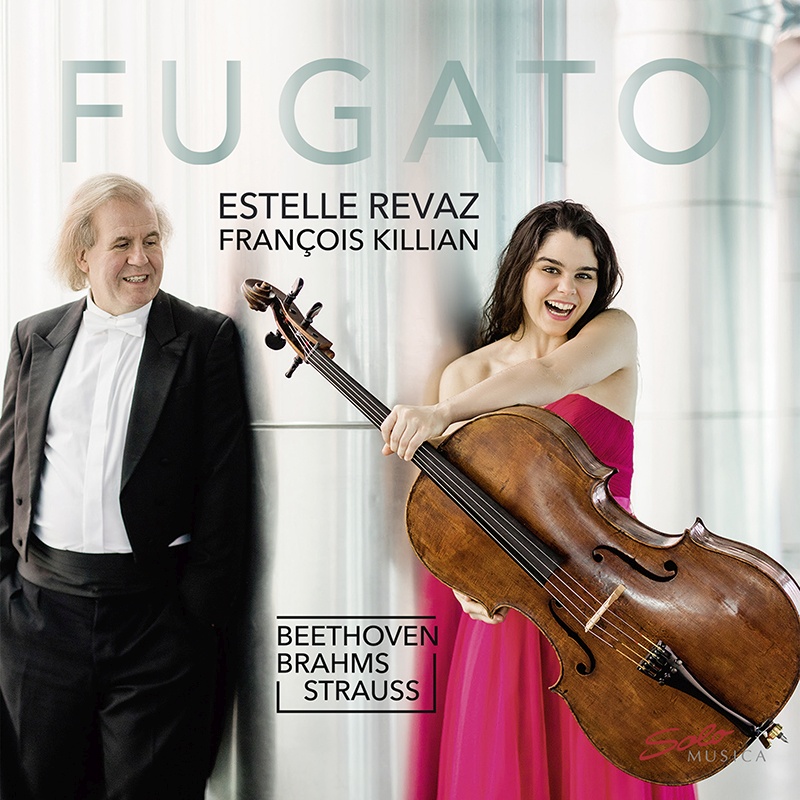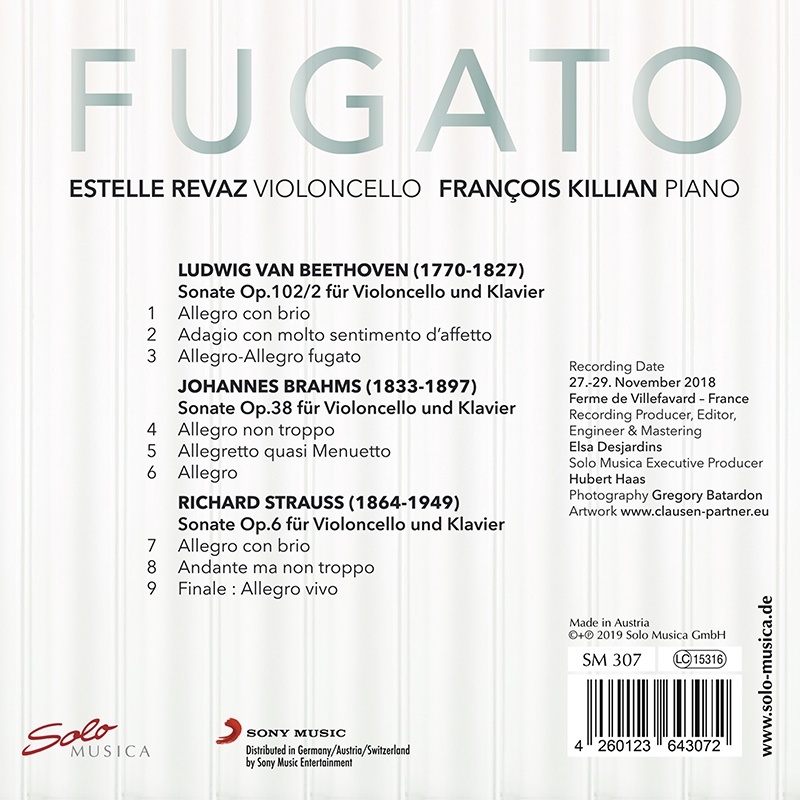
tytuł
Fugato
wykonawcy
Revaz, Estelle;
Killian, François
Killian, François
nr katalogowy
SM 307
opis
Just like Johann Sebastian Bach before him, Ludwig van Beethoven played a significant role in the development of the cello. His six sonatas for cello and piano, three cycles of variations and the Triple Concerto all enhanced the instrument's expressive scope to an extent that has not been bettered to date. With his unparalleled ability to endow the instrument with highly lyrical and elegantly cantabile qualities, he blazed the trail for composers who would follow him. So in what way and to what extent did Beethoven's last sonata, the through-composed and visionary op. 102, no. 2, influence Johannes Brahms and Richard Strauss, two composers with such very different and idiosyncratic styles? • The present album takes listeners on a journey through the German Romantic repertoire encompassing the power of tradition, the effect of original ideas and the ramifications of the innovative. In his last Sonata for cello and piano, Beethoven breaks with the traditions of the genre, as if he wanted to appeal to future generations. When this met with incomprehension in his contemporaries, he simply responded: "You will come to understand." • Estelle Revaz's special passion is chamber music, and she regularly performs in numerous European countries, in Asia and South America. François Killian has won prizes at many of the most famous international music competitions, including the Chopin Competition in Warsaw, the Artur Rubinstein Competition in Tel Aviv, and the Piano Masters of Monte Carlo. In 1981 François Killian won the ARD Music Competition in Munich.
nośnik
CD
gatunek
Muzyka klasyczna
producent
Solo Musica
data wydania
01-04-2019
EAN / kod kreskowy
4260123643072

(Produkt nie został jeszcze oceniony)
cena 58,00 zł
lubProdukt na zamówienie
Wysyłka ustalana indywidualnie.
Darmowa wysyłka dla zamówień powyżej 300 zł!
Darmowy kurier dla zamówień powyżej 500 zł!
sprawdź koszty wysyłki


















